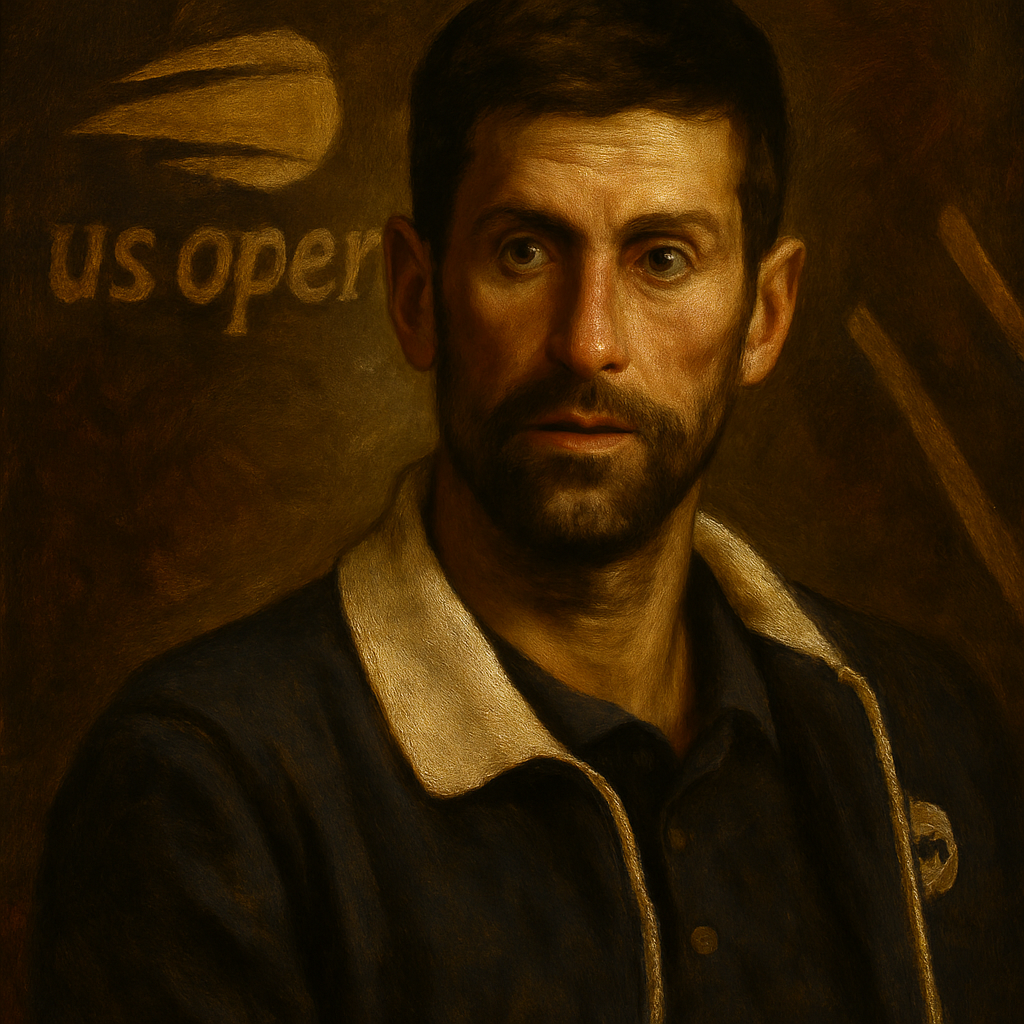NEW YORK — Novak Djokovic has cast a shadow of doubt over his US Open preparations, voicing significant concerns about his physical condition and level of play while also delivering a pointed critique of the ATP Tour's scheduling decisions. The 24-time Grand Slam champion's unexpected early exit from the Toronto Masters has raised alarms just weeks before the final major of the year.
Djokovic, who returned to North American hard courts for the first time since 2021, was defeated in a grueling three-set battle against eventual finalist Alejandro Davidovich Fokina. The match, which stretched late into the night, saw the Serbian legend struggle with fatigue and uncharacteristic errors, leading to a surprising third-round defeat that has sparked concerns about his readiness for Flushing Meadows.
A Concerning Lack of Match Sharpness
In a candid post-match press conference, Djokovic did not mince words about his current form. "I haven't played many matches, and I haven't had the best season, the season that I'm used to having or that I would like to have," he admitted. "I've been struggling with my movement a bit, especially side-to-side. I'm not 100% physically, I'm still finding my best tennis."
The lack of competitive play was evident throughout the match in Toronto. Djokovic’s usually impeccable service rhythm was off, resulting in a higher-than-usual number of double faults. His groundstrokes, typically precise and powerful, lacked their customary depth and penetration, allowing Davidovich Fokina to control rallies from the baseline.
The Serbian’s physical struggles were particularly telling in the decisive third set, where he appeared visibly drained. This is a significant cause for concern for his team and fans, as the US Open is renowned for its brutal, humid conditions and demanding best-of-five-set format, which tests a player’s fitness to its absolute limit.
A Blistering Critique of the ATP's Scheduling
Beyond his physical woes, Djokovic directed frustration at the ATP Tour itself, specifically the scheduling of the night session in Toronto that concluded after 1:30 a.m. local time. He argued that such late finishes are detrimental to player recovery and the overall quality of the sport. "I don't understand why the schedule was made the way it was made," he stated bluntly. "It's not the first time that we are talking about late finishes. This is one of the worst I've been a part of for a long time."
Djokovic’s criticism highlights an ongoing tension between players and tournament organizers. The push for prime-time television slots often results in matches starting late and finishing in the early hours of the morning, leaving players with minimal time to rest, cool down, and prepare for their next match, sometimes scheduled for the following afternoon.
He pointed out the clear disadvantage this creates: "We've been talking about this for years, and yet nothing has been done. The ATP seems to be ignoring the well-being of the players. It's unacceptable that we have to finish at 1:30 a.m. and then potentially play again the next day."
The Road to the US Open Now Clouded
With the Cincinnati Masters serving as his final tune-up event before the US Open begins on August 28th, Djokovic finds himself in an unfamiliar and precarious position. The lack of matches and his self-professed sub-par physical condition mean he has very little time to find his championship form on the hard courts.
Historically, Djokovic has used the North American summer swing to build momentum. His current predicament is a stark contrast to his dominant 2023 season. The key questions now looming over his campaign are:
- Can he recover physically in time for the grueling two-week Grand Slam?
- Will he be able to find his rhythm and confidence in Cincinnati?
- How will this lack of preparation affect his chances against rivals like Carlos Alcaraz and Daniil Medvedev?
The situation is further complicated by the rising competition. Young stars like Alcaraz and Jannik Sinner are playing with confidence and fearlessness, while seasoned rivals like Medvedev are always threats on hard courts. An underprepared Djokovic is a vulnerable Djokovic, a scenario his opponents will be eager to exploit.
Broader Implications for the ATP Tour
Djokovic’s public call-out is more than just a complaint; it’s a challenge to the tour’s leadership from its most decorated active player. His comments bring renewed attention to the Player Council's long-standing grievances regarding the tournament schedule, prize money distribution, and overall player welfare.
The ATP faces increasing pressure to address these concerns, especially from its top stars. The grueling 11-month calendar has been a topic of debate for years, with many players arguing for a shorter season and more mandatory rest periods to prevent burnout and injury.
Djokovic’s stature in the game means his words carry immense weight. By speaking out, he has amplified a conversation that the tour governance can no longer afford to ignore. It remains to be seen if this will catalyze any tangible changes to scheduling policies in the future.
A Champion Searching for Answers
For now, the focus for Djokovic and his team will be squarely on recovery and preparation. The coming days in Cincinnati will be critical. Every practice session and every match will be scrutinized for signs of improvement. The tennis world will be watching closely to see if the greatest returner of serve can once again return to form.
Despite the concerns, it would be foolish to count out a champion of Djokovic’s caliber. His career has been defined by overcoming adversity and defying expectations. "I know what I need to do," he asserted. "It's not the first time I'm in a situation like this. I'll figure it out."
However, the margin for error at the highest level of tennis is infinitesimally small. The US Open concerns are very real. Novak Djokovic, the undisputed king of Melbourne Park and a force on the grass of Wimbledon, now faces one of his toughest challenges: conquering his own doubts and a packed field in New York with his game not yet firing on all cylinders.

